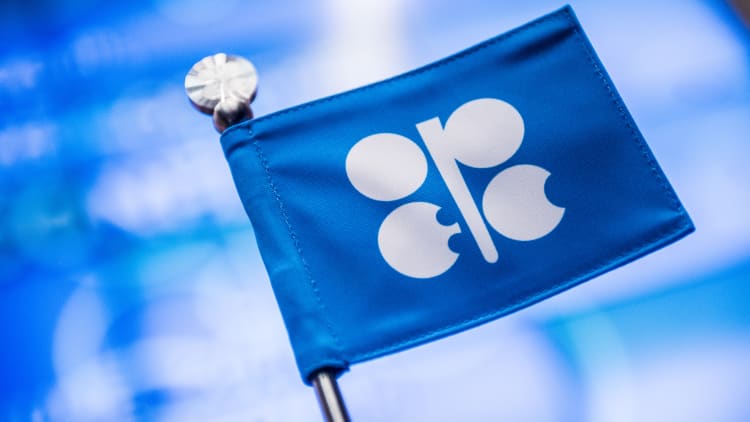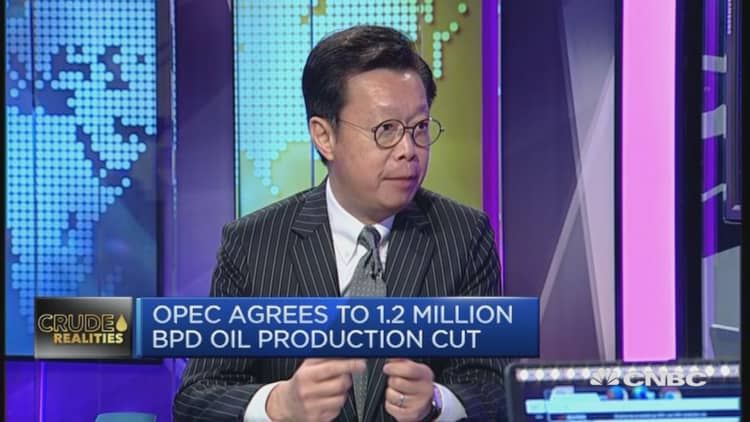
Iraq is stuck between a rock and a hard place in its effort to contribute to OPEC's planned production cuts in the first half of 2017.
Those cuts — which are designed to help the world work through a glut of existing oil supplies and thereby reduce prices — were scheduled to take effect this week. But big questions remain about how exactly Iraq will manage to hit its agreed-upon quota and cut out 210,000 barrels a day.
That includes how Iraq will handle its contractual commitments to the international oil companies that operate its massive southern oil fields, and whether the northern region of Iraq that's controlled by its Kurdish minority will go along with cuts.
Iraq is OPEC's second biggest producer, and it has promised some of the largest cuts among cartel members and other big producers like Russia. The overall goal among parties to the agreement is to remove nearly 1.8 million barrels a day from the market.
"Of the Middle East producers that agreed to the cuts, it's probably the one that has the most [international oil company]-operated production," Jessica Brewer, principal analyst for Middle East and North Africa upstream oil and gas at energy consultancy Wood Mackenzie. "There are a lot more parties involved, which makes it more complex."
Baghdad's contracts with foreign oil drillers include provisions that require the government to compensate them when production is curtailed for reasons beyond the drillers' control, Reuters reported after viewing contract excerpts in November.
Government-imposed production cuts could trigger those provisions, according to Brewer. What type of compensation that could entail can be negotiated, but it's possible the government could have to pay back the oil companies for lost revenue, she said.
That would be painful for Iraq. The country is already in financial straits after more than two years of low oil prices.
Currently, there are no clear signs Iraq has reached a deal to cut output with international oil companies such as BP, Exxon Mobil and Royal Dutch Shell, Brewer said. Meanwhile, OPEC's compliance panel meets to make its first assessment of output reductions on Jan. 21 and 22 in Vienna.
Iraq could dodge its problems it made the cuts from state-operated fields in the country's north, but that option provides no easy solution either, Brewer added.
That's because the semi-autonomous Kurdistan Regional Government took control of the city of Kirkuk after central government forces failed to defend it from Islamic State militants in 2014. The Kurds now control some of the oil production in the region and may not be willing to cut output, because their government is also struggling financially.
Iraqi Prime Minister Haider al-Abadi complained the Kurds were exporting more oil than they are allowed, Reuters reported on Tuesday. Under the 2017 budget, Kurds are permitted to export 250,000 barrels a day. The Kurds, who can ship oil to Turkey via a pipeline from Iraqi Kurdistan, oppose the export limits.
The central government and Kurdish leaders have long feuded over the Kurds' oil exports, which Baghdad says violate the constitution because only federal officials are authorized to sell the country's crude.
That said, a deal between Baghdad and the Kurds to cut northern output is "definitely not out of the question. It's just not something you would expect them to come to an agreement to overnight," she said.



